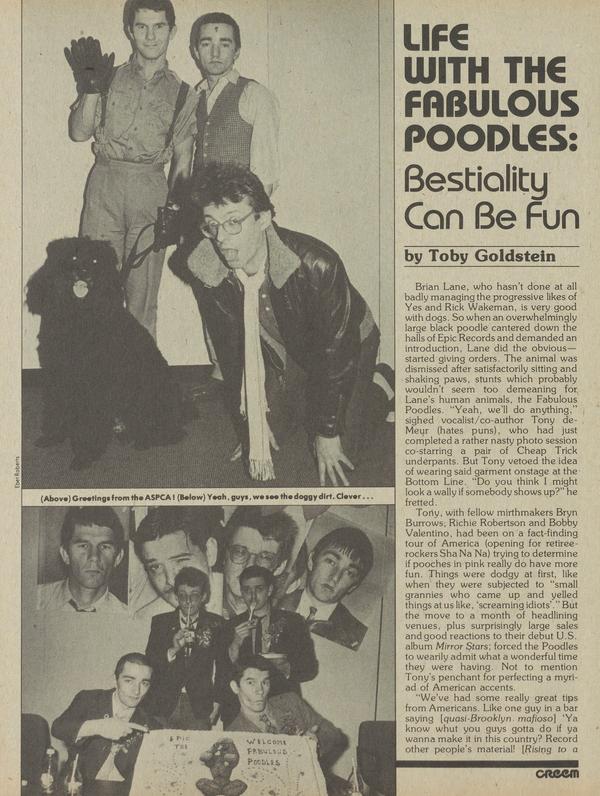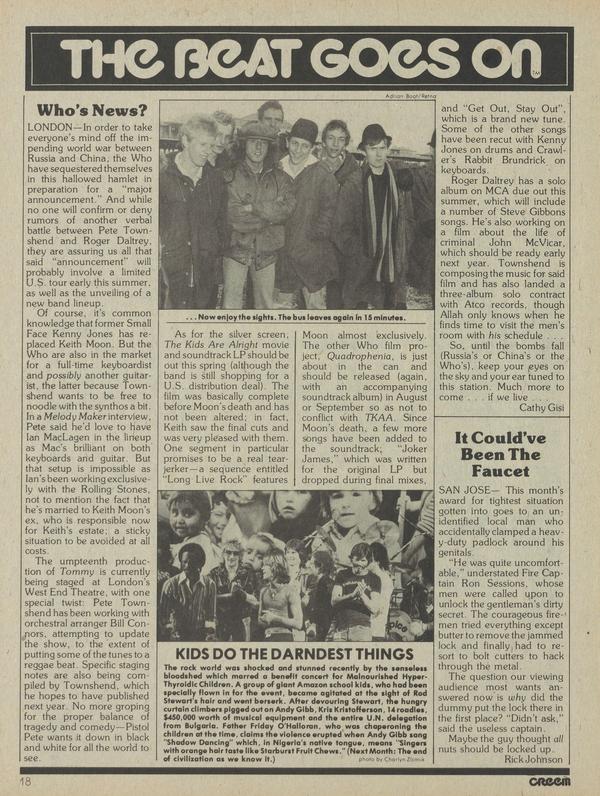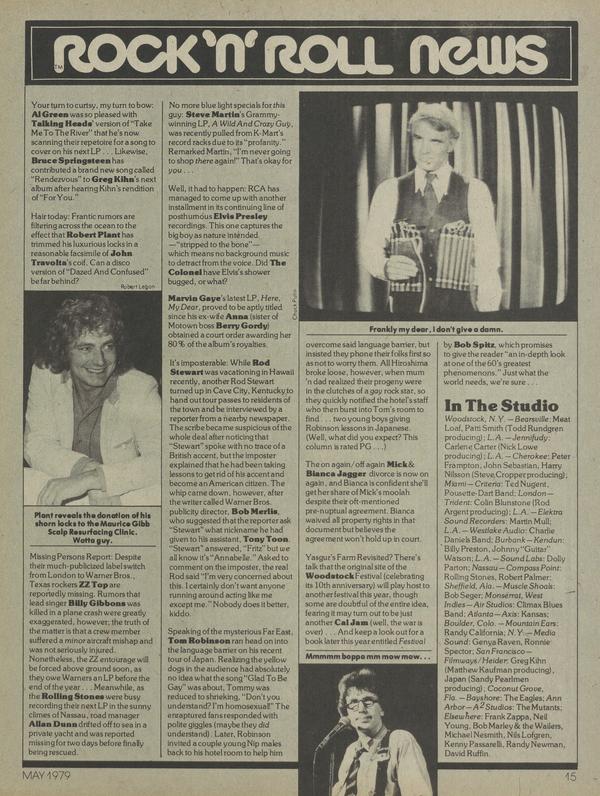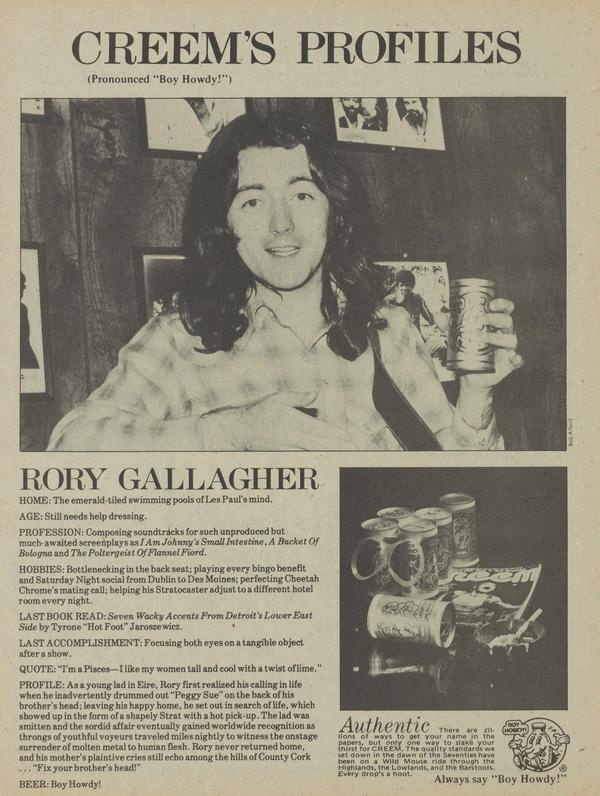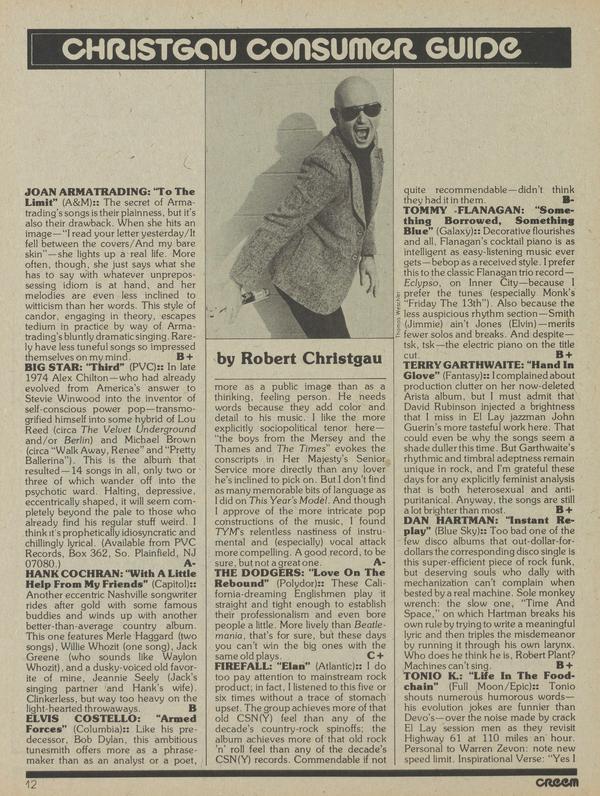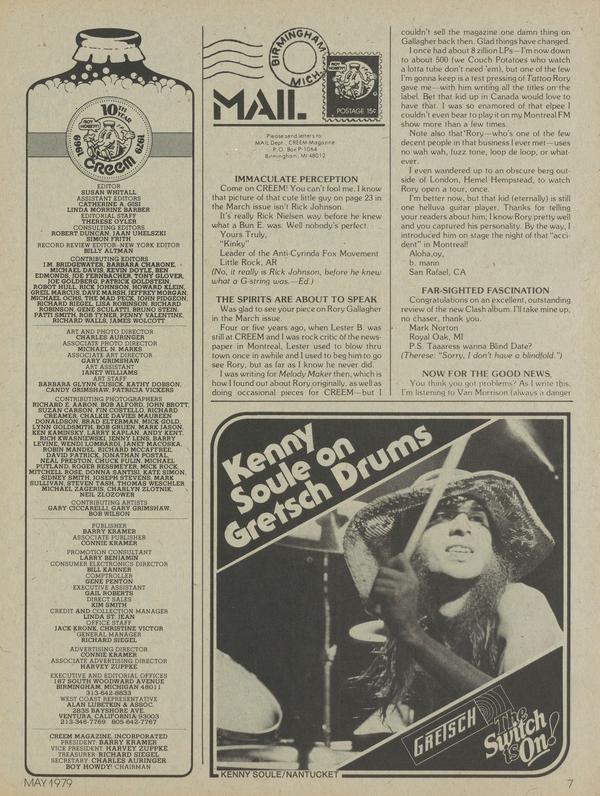Letter From Britain
Waiting For The End Of The World
When punk started, people were slumped over the table at our place, full of booze, arguing all night about what punk MEANT.


Two good things about rock music: how it makes even cynics get emotionally involved when they least expect it; how the best moments are the ones when something takes you off guard. When punk started, people were slumped over the table at our place, full of booze, arguing all night about what punk MEANT. Some of us had been out and seen it, some of us hadn't, but everybody had a violent opinion (the trouble with British critics is that they are self-conscious. It's not enough to like or dislike, you have to know what it all stands for. After all, why did thousands of kids want to jump on each other's heads?). When Elvis Costello started I couldn't understand the fuss. Simon Frith and I would phone each other after a gig: "Does it make any sense?" No.
Having to have an opinion, I decided I probably didn't like Costello at all. Repressed little bloke with his paranoia. It wasnft just that I had a sneaky feeling he didn't like women much—he didn't like anyone. But he didn't dislike them the way Johnny Rotten did—positive, angry. Costello was just plain spiteful. Like the kid at school you feel sorry for because he hung around the playground banging the chalk brushes on the wall to feel useful—until he sneaked to teacher because you wouldn't let him join your gang.


